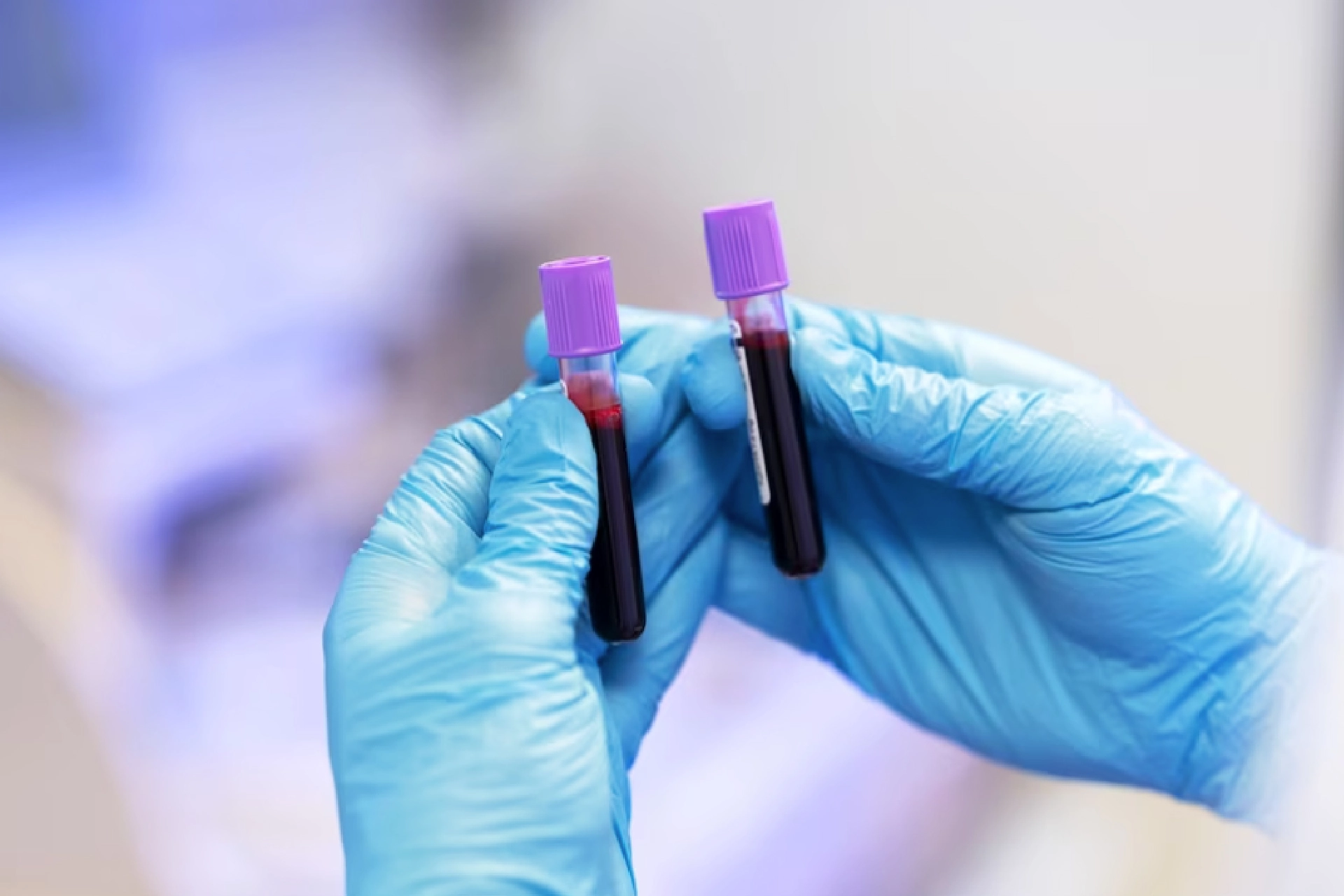Health Tests | 8 min read
Liver Function Test: Definition, Procedure, Normal Range
Medically reviewed by
Table of Content
Synopsis
A Liver Function Test (LFT) is a set of blood tests conducted to help diagnose and monitor liver disease and damage. These tests analyses the levels of specific proteins and enzymes in the patient’s blood. Read on to learn more interesting facts about Liver Function Test and its importance.
Key Takeaways
- Liver function tests are used to diagnose liver problems, check the severity of illnesses, etc.
- The main tests included in the LFTs are APTT, prothrombin time, bilirubin, and albumin
- A few of these tests also evaluate the level of performance of the liver
LFT test normal range differs for the different LFT tests like ALT, ALP, AST, etc. A Liver Function Test can help evaluate the health of your liver by measuring the level of liver enzymes, proteins, and bilirubin in your blood. LFT can also help identify the progression and treatment of certain diseases.
What is Liver Function Test (LFT)
Liver tests are used by doctors to understand the health of an individual’s liver. If a physician suspects that a person has liver disease or liver damage, he may ask the person for one or more tests to examine and determine the underlying cause.
Depending upon the nature of LFT, higher or lower values than the LFT test normal range can indicate a liver problem. An LFT test is typically performed to screen for diseases such as hepatitis, monitor the side effects of medicines, and understand the severity of the liver disease. LFT test normal range's important to:
- Decide if you need a diagnosis for liver diseases such as hepatitis [1]
- Monitor treatment of liver disease as the tests can show how the treatment is working
- Check how badly the liver is affected by diseases such as cirrhosis
- Monitor the side effects of certain medications

What is Included in Liver Function Test
The tests included in the Liver function test panel showing an LFT normal range if your liver is alright are:
- Alanine transaminase (ALT)
- Aspartate aminotransferase (AST)
- Alkaline phosphatase (ALP)
- Albumin (ALB)
- Total Protein (TP)
- Total Bilirubin (TB)
- Direct Bilirubin (DB)
- Indirect Bilirubin (IDB)
- Gamma-glutamyl transferase (GGT)
- Prothrombin Time (PT)
What is the Purpose of Liver Tests
The liver function test involves many measurements, and when the test is actually done, physicians can modify what measurements need to be done. No universal standard is there for what is measured on an LFT but given below are the most common components that are measured:
Alanine Transaminase (ALT)
ALT is an enzyme in the liver that helps convert proteins into energy needed for the liver cells. When the liver does not function properly, ALT enzyme levels increase as they are released into the bloodstream.Aspartate Transaminase (AST)
The AST enzyme helps to metabolize amino acids. Usually, AST is present in the blood at normal levels, but an increased amount of AST could be a sign of liver disease, damage or muscle damage. You won’t achieve the LFT test report normal result if you have more AST in your blood than required.
Alkaline Phosphatase (ALP)
The ALP enzyme too occurs in the liver and bone and is vital for breaking down proteins. [2] Greater than regular levels of ALP can signal liver disease, damage, bone disease or blocked bile duct.
Albumin and total protein
Our liver makes several proteins, one of which is albumin, and our body needs these proteins to perform various functions and fight infections. Albumin and protein levels lower than normal may indicate liver disease or damage.
Bilirubin
Bilirubin is produced when the red blood cells break down. It passes through the liver and is excreted via stools. Higher than normal bilirubin levels may signal liver disease, damage, or certain types of anemia.
Gamma-Glutamyl Transferase (GGT)
GGT is another enzyme in the blood, and greater than normal levels can be a sign of bile duct or liver damage. You won’t be able to have an LFT test normal range if you have an increased amount of this enzyme in your blood.L-Lactate Dehydrogenase (LD)
LD is another type of liver enzyme, and elevated levels of this enzyme can signal liver damage. This enzyme also increases due to certain other disorders as well.
Prothrombin time (PT)
Prothrombin Time is the time taken for your blood to clot. Increased PT can signal liver damage, but PT can also be elevated if you are consuming certain blood-thinning medications like warfarin.
Additional Read: Types of Blood Test
Liver Function Test Normal Range
Given below are the LFT test normal range and indications of the liver function test:
Liver Function Test | Indication | LFT Normal Values |
| ALT Test | A higher number on this test can indicate liver damage. Very high levels of over 1000 U/L are usually due to hepatitis or injury from drugs. | A number above 25 U/L in women and 33 U/L in men requires further evaluation. |
| AST Test | A high number on the AST test may signal a problem with your muscles or liver. High AST with low ALT can indicate muscle or heart disease. Elevated ALT, ALP and bilirubin signal liver damage. | The typical AST range is up to 36U/L in adults and higher in children and infants. |
| ALP Test | High ALP may be a sign of bone disease, bile duct blockage, or liver inflammation. | The typical ALP range in adults is between 20-140 U/L. Children, teenagers and pregnant women may have elevated levels of ALP. |
| Albumin Test | A low albumin test result can indicate liver malfunction. This may be due to diseases such as malnutrition, cancer or cirrhosis. | The acceptable albumin range in adults is between 30-50 g/L. But kidney disease, poor nutrition, and inflammation can also lower the levels. |
| Bilirubin Test | A high level of bilirubin may indicate improper liver functioning and, combined with ALT or AST, may indicate hepatitis or cirrhosis. | The range for total bilirubin is typically between 0.1-1.2 mg/DL. |
Who Should Get a Liver Test?
Physicians do liver function tests to diagnose the liver health of a person. If he suspects that someone has a liver disease or damaged liver, he may conduct one or more LFTs to identify the primary cause. You may need to take up liver function tests if you are experiencing any of the following liver disease symptoms:
- Fatigue
- Nausea or vomiting
- Jaundice
- Darker color urine or lighter color stool
- Abdominal swelling or pain
- Itching
- Diarrhoea
- Loss of appetite
You may need to take LFT tests if you have certain risk factors or are at an increased risk of liver disease in the case you:
- Think that you are exposed to the hepatitis virus
- Have a chronic condition such as alcohol use disorder or alcohol addiction
- Take certain medications that may impact the liver and cause liver damage
- Have a family medical history of any liver condition
- Show symptoms of liver damage
- Have used intravenous drugs
- Have been obese or overweight
If you have any medical conditions affecting the liver, show unusual symptoms, consume alcohol regularly, or are undergoing treatment for liver disease, you are at an increased risk of liver disease and must undergo liver function tests to properly monitor and diagnose the condition. If you are in a dilemma if you need to take the LFT for an LFT test normal range, book an online doctor consultation.

How it Works?
The blood sample is needed for the LFT test procedure. Blood is usually drawn from the patient via a small needle inserted into a vein at the bend of his arm. During the blood draw, the staff will disinfect the area over a big vein in the arm. They may sometimes tie an elastic band a little above the draw site to increase the vein pressure. Once the healthcare staff can spot the vein under the skin, they will insert a needle at a 30-degree angle.
A small tube is connected to the needle, where the blood is collected. The patient may feel mild pain and small discomfort when the needle is inserted or removed from the arm.
After the blood sample is drawn, it is sent to the lab for analysis. You can get the test results within a few hours if the lab analysis is done on-site. If your physician sends your blood sample off-site, you will receive the results only after a few days.
Additional Read: Complete Blood Count (CBC) TestIs a Liver Test Risky?
There is little or no risk in taking a liver function test. The blood sample is taken from one of your arm veins. The only risk with these blood tests is mild bruising, soreness or pain at the spot the needle was inserted, but these symptoms will go away quickly. The majority of people do not have any serious reactions to liver function tests.
Certain Dos & Don'ts
Since certain medications and food may affect the results of your liver function tests, and you may not achieve an LFT test normal range, your physician may ask you not to eat or take medicines before the blood sample is drawn. Typically, you may be required not to eat or drink anything for 10-12 hours before the LFT is done.
The LFT test's purpose is to check the overall health of your liver. Once you get your LFT done, your physician can interpret the results and advise what the results mean. If he suspects a liver disease, he may suggest future courses of action such as detailed imaging, biopsy and so on. Log on to Bajaj Finserv Health to connect with the best doctors near you and book online lab tests.
References
- https://stanfordhealthcare.org/medical-conditions/liver-kidneys-and-urinary-system/chronic-liver-disease/diagnosis/liver-function-tests.html
- https://cura4u.com/blog/what-does-high-alkaline-phosphatase-indicate
Disclaimer
Please note that this article is solely meant for informational purposes and Bajaj Finserv Health Limited (“BFHL”) does not shoulder any responsibility of the views/advice/information expressed/given by the writer/reviewer/originator. This article should not be considered as a substitute for any medical advice, diagnosis or treatment. Always consult with your trusted physician/qualified healthcare professional to evaluate your medical condition. The above article has been reviewed by a qualified doctor and BFHL is not responsible for any damages for any information or services provided by any third party.





